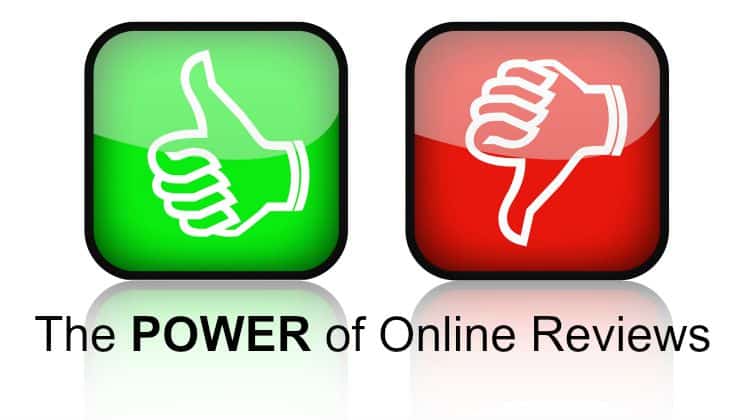
We care what people think. We care about the opinions of our fellow consumers—about their past experiences with the appliances that could possibly fill our homes, the apparel that could clothe our bodies, the products our children might play with, the food that may fill our stomachs, and the services we could experience.
The fact that we trust the opinions and experiences of our fellow consumers points to the power of the online review. Online reviews provide us with the vital information we need to make an educated purchasing decision.
Online reviews matter because they influence consumer opinion and seem more reliable than what businesses say. They provide buyers with reassurance that their hard-earned money is going to the best possible goods and services. This provides the reviewing community with immense power, and it is up to them to wield it responsibly, as online reviews have the power to boost a new business or crush an existing one.
What it really boils down to is trust. Online reviews are built off mutual trust; consumers trust that what the other consumers in the online community are saying is true and based off true, real-life experiences. When a review platform violates this bond of trust, the consumer experience is tainted.
But what about the power of online review platforms? Here are a few examples of powerful online review platforms:
Google Places
Google Places is a front-runner in the online review arena, considering Google is so very integrated into the average internet user’s life. Billions of people use Google to perform internet searches via both mobile and desktop interfaces. Google Places is one avenue a business can take to take advantage of the power of online reviews.
When your business is listed on Google Places, it will be easier to find online. An optimized Google Places listing will help with a hyper-local campaign, increase your SEO rankings, and showcase positive customer reviews, attracting new business.
Yelp
When it comes to online reviews, most internet uses are familiar with Yelp. Like Google, Yelp is familiar. The company has been around since 2004. In those 11 years, the dedicated Yelp community has created a comprehensive review database with over 77 million reviews.
However, problems with Yelp arise when trust and authenticity are factored into the equation. We have already discussed the importance of trust to the consumer when turning to an online review.
Yelp is facing lawsuits and backlash from business owners. Not only has Yelp been slow to remove false reviews that damage small businesses’ brand images and profit potential, but Yelp’s algorithm forces business owners to use Yelp’s advertisements or else negative reviews will show up on their pages, bringing down their ratings.
UpDog
UpDog is a new video-based review platform that utilizes video and social media integration to keep reviews honest. The folks over at UpDog have put the power of the review back in the hands of the consumer.
The Power of Online Reviews
Online reviews really are a powerful thing. They can make or break a consumer’s decision to cross your threshold or cause her to turn to another business. Having positive consumer reviews on trustworthy review platforms will drive traffic to your business and help to create a positive brand image.
It’s worth noting that once something is online, it’s there forever. If multiple consumers post bad reviews to a company’s social media platform and the company does nothing to remedy the situation, this can and will hurt the company’s brand image. On the other hand, multiple positive reviews can draw attention to a new or existing product.
For a business, it’s important to harness the power of online reviews and all the credibility-building, profit-earning, traffic-generating potential that comes with it.
About the Author
Bree Goldstein, founder of UpDog App, is a former firefighter turned entrepreneur. When she’s not working on her business, she enjoys cycling, cooking, and spending time outdoors. Bree lives in Central Florida with her husband.